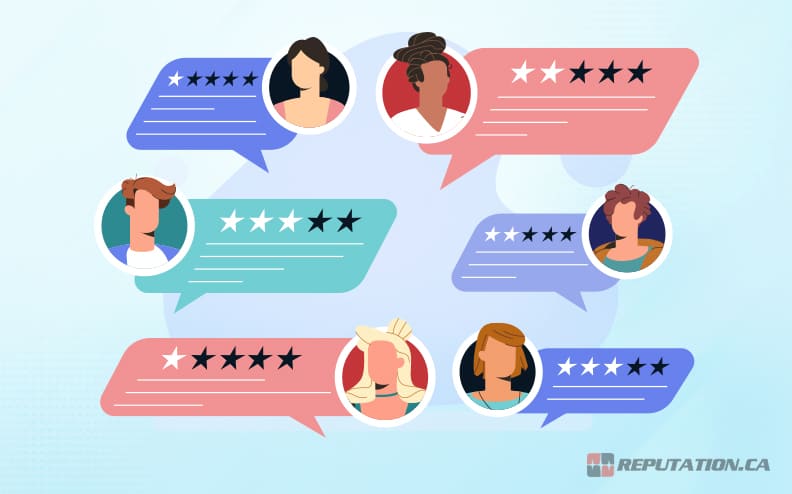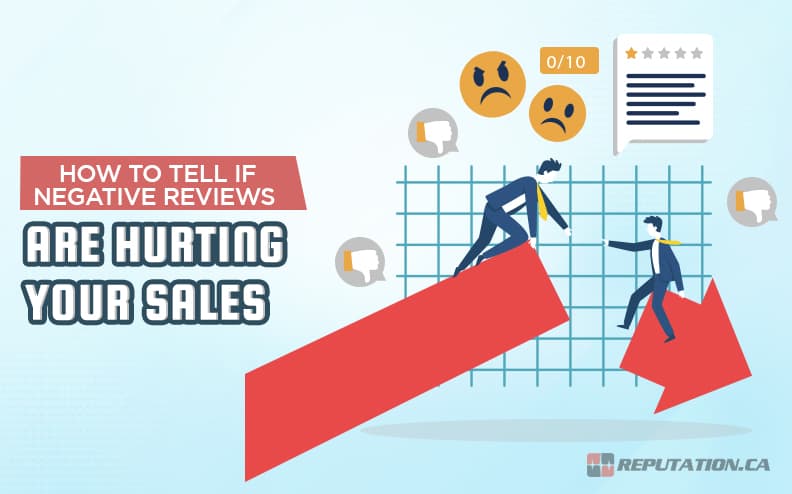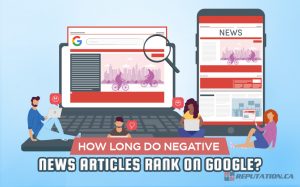One of the most challenging parts of running a business is managing the public perception of your company. It is not uncommon for a company to make mistakes or have a faulty product ship out to a customer. Unfortunately, when this does occur, it can lead to your customers taking exception and venting their frustrations via reviews.
Leaving a review is one of the most common acts a customer can perform, usually only when unsatisfied. In the modern era, reviews have become a way for people to complain about their disappointment with a certain product or service. Sometimes, these complaints are completely valid due to a mishap on the company’s part. Despite the nature of the review, it can impact your business model.
A large portion of any consumer base is more likely to look into reviews about a company or product before committing. This is usually done to determine if other customers were satisfied or if the product is unreliable for most consumers. When too many negative reviews pile up, it can negatively affect your revenue and business success.
While reviews are common and can cause a fair amount of damage to your company, it can be difficult to isolate them as the main cause of your business struggles. Fortunately, there are tools you can use to see how reviews affect businesses and how they affect you directly.
Know the Statistics
It might be easy to think that one bad review from a disgruntled customer is not enough to sink your business. However, it is never just one review. How reviews are left, the type of reviews, and who reads them impact your overall business model. Every year, BrightLocal conducts a survey to determine what types of reviews are left and how many people read them before committing to a purchase.
Understanding these statistics allows you to understand better how these reviews impact your sales and illuminate what needs to be done to resolve the issues.

The main statistics according to the 2022 survey are as follows:
- 77% of consumers regularly read reviews while searching for local businesses that provide a product.
- 67% of consumers are willing to leave a review outlining a positive experience, while 40% are willing to leave a review outlining a negative experience.
- 89% of consumers are highly likely to go through a business that actively addresses all reviews about its products and services.
- 57% of consumers are highly unlikely to go through a business that does not address all reviews left about its products and services.
- 81% of consumers use Google reviews to assess the reliability of a company.
- 88% of consumers look at reviews beyond the last 2 weeks.
- 97% of consumers are unwilling to go through a company with less than a 2-star rating.
- 62% of consumers believe that some positive reviews left on the sites are fabricated by the business to draw in customers.
- 93% of consumers are suspicious of reviews on social media platforms like Facebook.
These statistics are only a reference for the details you need to consider when dealing with reviews. Given that most customers will use reviews to gauge your company’s reliability, it is in your best interest to address any reviews left about you. The tricky part is knowing what needs to be done and how to accomplish that goal. Fortunately, this list of statistics can be used as a checklist for steps to take.
The Negative Reviews Outnumber the Positive
Reviews can generally be categorized as either positive or negative, which is information you likely already possess. Negative reviews can be a huge issue for a company rooted in sales and consumer loyalty. If your product is deemed unreliable or of poor quality by the consumers, they are more likely to leave a negative review to warn off other potential “victims.”
While only 40% of customers tend to leave a negative review, the size of your customer base determines whether 40% means ten people or 1,000. The more negative reviews there are, the more likely you will lose out on business.
With 77% of consumers using reviews to decide whether they should purchase your product, having negative reviews outrank positive reviews could put you out of business. This is doubly true for businesses whose star ratings fall too low. The star ratings of a company, as you likely know, are determined by the average quality of the reviews.
The more negative reviews, the lower your star rating. Unfortunately, too many companies believe that once a review is left, there is nothing more to be done or the only recourse is to post false reviews to balance the scales dishonestly.

However, review pages and websites are not exclusively for the consumers but can also be used by the business being reviewed. This function enables businesses dealing with negative reviews to address the consumer’s concerns and attempt to rectify the issue. While it is possible to comment on the review to reach out to the consumer, you also need to be careful about how you go about addressing the review. It is understandable to get a little protective of your company, but the best way to address a negative review is to remain diplomatic.
Showing that you take the reviews seriously and consider your consumers’ concerns helps your customers reassess their initial perception of you. It also demonstrates a desire to want to make things right when a customer is left underwhelmed by the quality of a product or service. If you do not acknowledge negative reviews and try to correct the issue that led to the review, your business’s reputation will plummet.
Outrank the Google Results
As mentioned, 81% of your consumer base goes through Google’s results to assess a business. The Google review system allows the average Google user to comment on their experiences with a company or product that is accessible to every other user. These results are also more dangerous thanks to Google’s autocomplete search function, which automatically recommends the most commonly searched questions about your business to new searchers.
This makes it more likely for the bad parts of your business to be highlighted when the negative outweighs the positive. While this can devastate your company’s business model, it can recover, especially if negative reviews top the results.
The biggest issue when dealing with Google results is finding a way to outrank them and divert results to the positive details of your business. This usually requires you to overcome the parameters set forth by Google’s search engine that funnel users to the most commonly searched results.

Fortunately, there is a technique many businesses use to accomplish this goal. The act of search engine optimization (SEO) allows you to tweak the results that most commonly appear regarding your business. Through SEO, you can take advantage of the same parameters that dictate how Google’s engine identifies the top results.
The best way to outrank the information Google tends to focus on is to post articles and blog posts on your business’s website. You can redirect traffic to your website’s hosted content using the same keywords centered around your business. Sometimes, it is even possible to be invited to post on other websites if your expertise is deemed substantial enough by the potential host.
There is more information that goes into outranking Google results. Still, the key takeaway is that bad reviews that outrank all other information on your company are a sign of how they are hurting your business.
We live in a society that has become rather unforgiving to certain comments or jokes posted on social media. This phenomenon has led to private citizens effectively shutting their social presence. A single comment can spread across the country in less than a day through social media, even if the comment came from a consumer. Maintaining a corporate social media profile is a double-edged sword that allows you to advertise and communicate directly with your customers.
While social media can be useful for connecting with your customers, it also allows them to comment on your profile directly. This allows them to address you directly and comment on any issues they might have experienced with your products. Due to the nature of social media, any other customers following your page can see those comments. This can prove extremely dangerous and require the same level of attention as online reviews.

You must be diplomatic in approaching these social media posts like the online reviews. That said, you also need to be extremely careful about what you post in general. Nowadays, any post deemed controversial or offensive can lead to a mass protest against your company that could cost you a great deal of business.
Keeping your corporate posts to the point and focused on your product and business is a good way to avoid getting caught in internet drama. This is not to say you should not take advantage of entertaining content, but that you should run the post through a team to ensure it cannot be misconstrued. If your social media profile is packed with comments from disgruntled consumers, it can have just as profound an effect on your reputation as a negative review.
The Wrong Reviews Are Appearing
Though rare, it is possible for the reviews associated with your company not to match the product or service you provide. The internet is far from the perfect medium for hosting online retail services, especially when data transfers so fast that some information is placed in the wrong area. One of the most common causes of misattributed reviews is when the product you sell is hosted on a 3rd party website like Amazon.
Sometimes, when a listing is replaced to make way for your product, the reviews for the previous entry are left behind. Depending on the product you are selling, this could mean that the reviews for a radically different product are associated with yours by mistake.

For example, if you are selling an MP3 player and the previous reviews were for a poorly made desk fan, your device would have negative reviews for its poor function as a fan rather than comments on its use as an MP3 player. Ordinarily, this mistake might seem irrelevant once a customer reads through the reviews. Unfortunately, not every customer makes it that far and simply looks at the star rating.
There are other causes for misattributed reviews, but it is something that you will have to correct immediately. The longer the reviews for another business are associated with your company, the more it will drive off business. Either the customers will believe the negative reviews are about your product and service, or they will be put off when your services do not match what was listed in the reviews.
Take Your Reputation Back
Managing a business is extremely difficult, made even more complicated by reputation’s effect on success. When a reputation is allowed to spiral out of control, it can become impossible for the business to succeed. While several factors contribute to a business’s success or failure, reviews are among the most important.
The comments left by your consumers are taken more seriously than any advertising campaign you might have. This is because the average consumer is more inclined to believe their fellow consumers than a company looking to turn a profit. Unfortunately, managing many incoming reviews can be challenging without a dedicated team.

Fortunately, it is not something you need to go through alone. We at Reputation have made it our mission to help companies maintain and market their reputations. We cover a wide range of services, including review management, search engine optimization, and social media management, to generate the best possible reputation for your business.
We know how difficult it can be to manage the details of a corporate reputation, but we are here to make that effort a little easier. So, visit our website today and see what services we can offer you so you can take your reputation back! We’re standing by and ready to assist you and your business however we possibly can!











